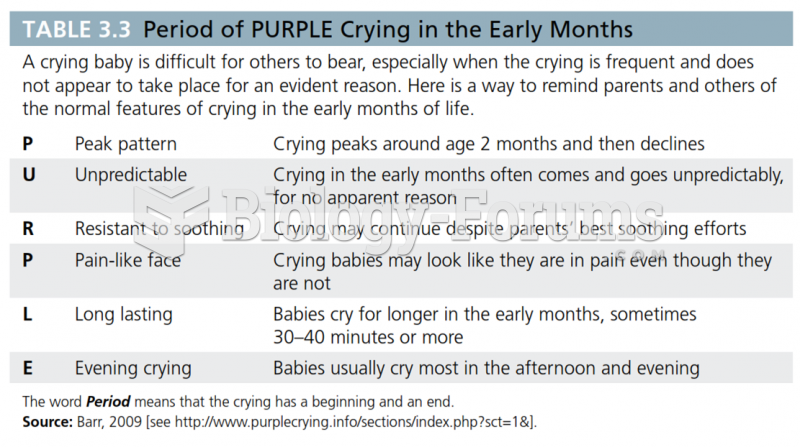|
|
|
Fungal nail infections account for up to 30% of all skin infections. They affect 5% of the general population—mostly people over the age of 70.
The first oral chemotherapy drug for colon cancer was approved by FDA in 2001.
Vital signs (blood pressure, temperature, pulse rate, respiration rate) should be taken before any drug administration. Patients should be informed not to use tobacco or caffeine at least 30 minutes before their appointment.
Vaccines cause herd immunity. If the majority of people in a community have been vaccinated against a disease, an unvaccinated person is less likely to get the disease since others are less likely to become sick from it and spread the disease.
There are approximately 3 million unintended pregnancies in the United States each year.
 The geomagnetic polarity time scale shows how Earth’s magnetic pole has changed through geologic tim
The geomagnetic polarity time scale shows how Earth’s magnetic pole has changed through geologic tim
 The terrorist attack of September 11, 2001, is surely a defining event for the cohorts who experienc
The terrorist attack of September 11, 2001, is surely a defining event for the cohorts who experienc





